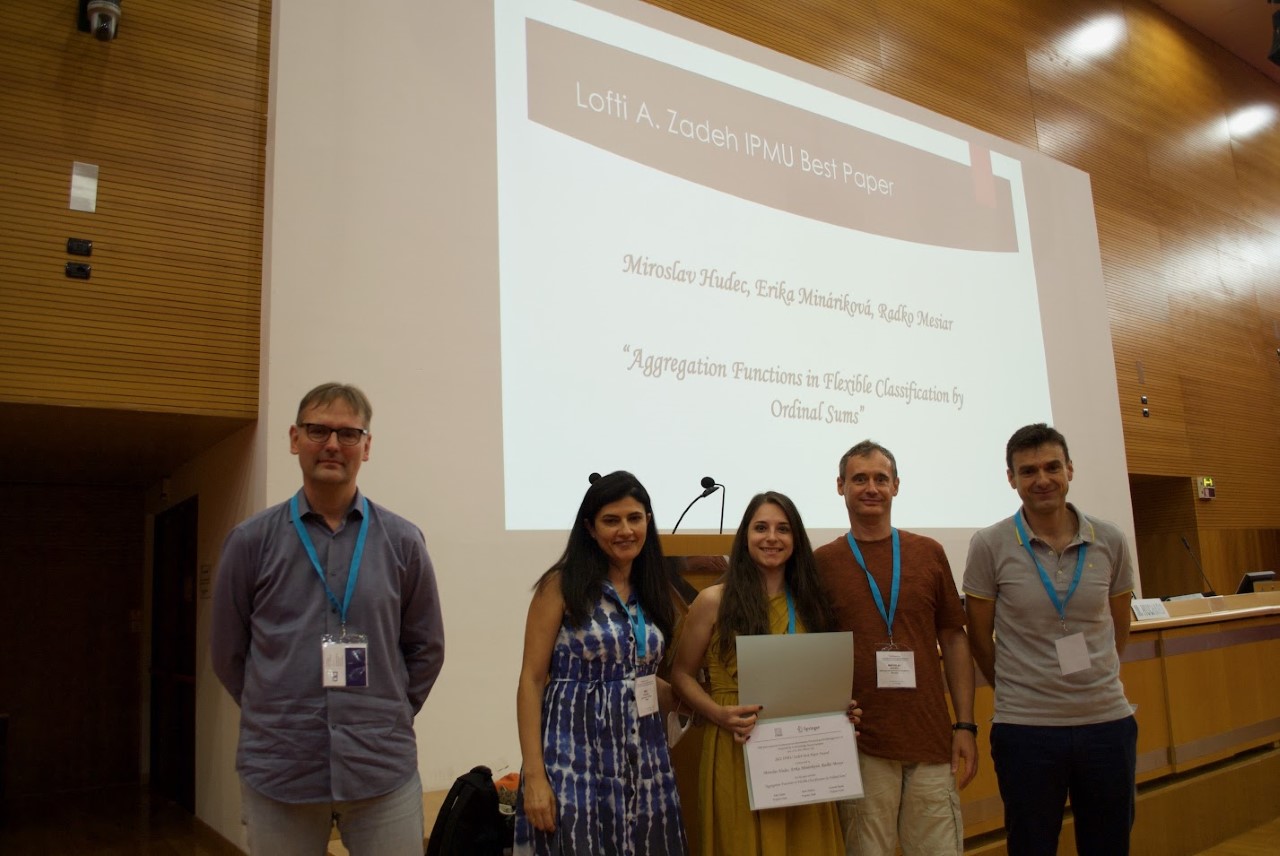Summer months at the university are used by our colleagues not only to enjoy their summer vacations, have rest and recharge their batteries before the new academic year starts but also to work on their research activities they have been pursuing for many years. These activities are also perceived abroad and our colleagues can thus compare themselves to researchers from all over the world.
It is also thanks to our researchers that the University of Economics in Bratislava sees a steady rise in terms of quality. The university's quality status is also attested by the prestigious AACSB accreditation obtained by the university in November 2021 thus ranking it among top 6% business schools in the world holding this accreditation.
Important Recognition of Scientific Results for Our Colleagues from the Faculty of Economic Informatics in the World
At the 19th International Conference on Information Processing and Management of Uncertainty in Knowledge-Based Systems (IPMU 2022) which took place on 11 - 15 June 2022 in Milan, Italy our colleagues doc. Dr. Ing. Miroslav HUDEC and doctoral student Ing. Erika MINÁRIKOVÁ, both from the Faculty of Economic Informatics, received the Lotfi A. Zadeh Best Paper Award for their research article entitled "Aggregation Functions in Flexible Classification by Ordinal Sums". This paper has provided a solution to some computational intelligence problems concerning classification by ordinal sums. The award was named for Professor Lotfi A. Zadeh, founder of the fuzzy set theory and a key personality in computational intelligence.

The prestigious Harvard Business Review magazine published a research by doc. Ing. Mgr. Maroš SERVÁTKA, PhD. of the Department of Finance at the UEBA's Faculty of National Economy.
In addition to the researcher Professor Servátka, the project had three coresearchers: Stephen Knowles, Trudy Sullivan and Murat Genç, all from New Zealand's University of Otago. As part of their research work, they invited 3,276 people to take part in a short online survey in exchange for a 10$ donation to charity. Some participants were given a one-week deadline, some were given a one-month deadline, and some were given no deadline at all.
Maroš Servátka: "Deadlines motivate us to do things we might otherwise put off, but the relation is not always clear-cut. For example, although a long deadline theoretically gives us more time to finish a task, it often means that we postpone it over and over until eventually we forget all about it.”
The conclusion: To keep people from procrastinating, don't give them a deadline.
Maroš Servátka: "Our survey was actually returned by only 5.5% of the people who were given a one-month deadline compared with 6.6% of those who were given a week. But people who were given no deadline had the highest response rate of all: 8.3%. And they were more likely than the others to return the survey within three days.”
Link to the full version of the article: https://hbr.org/2022/09/to-keep-people-from-procrastinating-dont-give-them-a-deadline
We extend our gratitude for exemplary representation of the University of Economics in Bratislava in research and wish many more successful research activities.